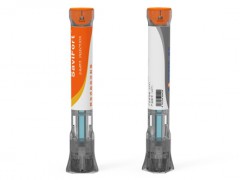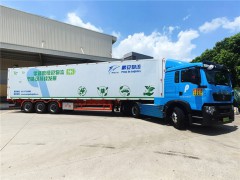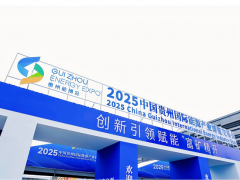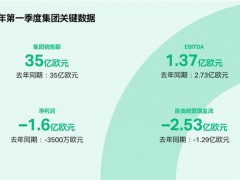據(jù)能源經(jīng)濟(jì)6月28日消息稱,在英國(guó)商務(wù)大臣Kwasi Kwarteng訪問奧斯陸后,挪威石油和天然氣公司Equinor周二表示,已將其在英國(guó)的氫氣生產(chǎn)目標(biāo)提高到1.8 吉瓦 (GW)。
Equinor 表示,計(jì)劃新增 1.2 GW 低碳制氫產(chǎn)能,主要供應(yīng)Keadby hydrogen,這是Equinor與英國(guó)公用事業(yè)公司SSE聯(lián)合開發(fā)的世界上第一個(gè)大型100%氫氣發(fā)電廠。
它補(bǔ)充說,在等待英國(guó)政府的支持下,該工廠可能會(huì)在本十年結(jié)束前開始運(yùn)營(yíng)。
Equinor首席執(zhí)行官Anders Opedal表示,該公司的項(xiàng)目將幫助英國(guó)實(shí)現(xiàn)其氣候目標(biāo)。他與Kwarteng和挪威石油和能源大臣Tina Bru參加了會(huì)議。
Opedal 在一份聲明中說:“我們?cè)谟?guó)的低碳項(xiàng)目建立在我們自己的工業(yè)經(jīng)驗(yàn)之上,并將在英國(guó)工業(yè)中心地帶的領(lǐng)先地位中發(fā)揮重要作用。”
英國(guó)的目標(biāo)是到2050年實(shí)現(xiàn)凈零碳排放,到2030年實(shí)現(xiàn)5 吉瓦的清潔氫產(chǎn)能,并正在為一些脫碳項(xiàng)目提供資金支持。
Equinor已經(jīng)計(jì)劃在英格蘭東北部建立一個(gè)0.6 GW的工廠,從天然氣中生產(chǎn)所謂的“藍(lán)色”氫,同時(shí)捕獲相關(guān)的二氧化碳(CO2)排放。
該公司還參與了一個(gè)在該地區(qū)發(fā)展二氧化碳運(yùn)輸和儲(chǔ)存基礎(chǔ)設(shè)施的項(xiàng)目。
通過使用可再生電力從水中生產(chǎn)氫或結(jié)合碳捕獲和儲(chǔ)存 (CCS) 的方式從天然氣中生產(chǎn)氫氣的方式,被認(rèn)為對(duì)鋼鐵和化學(xué)品等行業(yè)的脫碳至關(guān)重要。
如今,大部分氫氣是由天然氣生產(chǎn)的,而相關(guān)的二氧化碳則被排放到大氣中。
朱佳妮 摘譯自 能源經(jīng)濟(jì)
原文如下:
Norway's Equinor aims to triple UK hydrogen production capacity
Norwegian oil and gas firm Equinor said on Tuesday it had raised its hydrogen production goal in the United Kingdom to 1.8 gigawatts (GW), following a visit of Britain's Business Secretary Kwasi Kwarteng to Oslo.
Equinor said it planned to add 1.2 GW of low-carbon hydrogen production capacity mainly to supply Keadby Hydrogen, the world's first major 100% hydrogen-fired power plant it is developing jointly with British utility SSE.
Pending support from the British government, the plant could start operations before the end of the decade, it added.
Equinor's Chief Executive Anders Opedal, who took part in a meeting with Kwarteng and Norway's Oil and Energy Minister Tina Bru, said its projects would help the UK achieve its climate goals.
"Our low-carbon projects in the UK build on our own industrial experience and will play a major role in setting the UK's industrial heartlands in a leading position," Opedal said in a statement.
Britain has a target to reach net-zero carbon emissions by 2050 and 5 GW of clean hydrogen capacity by 2030, and is providing financial support to a number of decarbonisation projects.
Equinor is already planning to build a 0.6 GW capacity plant in north-eastern England to produce so-called "blue" hydrogen from natural gas, while capturing associated carbon dioxide (CO2) emissions.
It is also involved in a project to develop CO2 transport and storage infrastructure in the region.
Clean hydrogen, produced from water by using renewable electricity or from natural gas in combination with carbon capture and storage (CCS), is seen vital to decarbonise industries such as steel and chemicals.
Today most hydrogen is produced from natural gas, while associated CO2 emissions are released into the atmosphere.
免責(zé)聲明:本網(wǎng)轉(zhuǎn)載自其它媒體的文章,目的在于弘揚(yáng)石化精神,傳遞更多石化信息,并不代表本網(wǎng)贊同其觀點(diǎn)和對(duì)其真實(shí)性負(fù)責(zé),在此我們謹(jǐn)向原作者和原媒體致以敬意。如果您認(rèn)為本站文章侵犯了您的版權(quán),請(qǐng)與我們聯(lián)系,我們將第一時(shí)間刪除。







